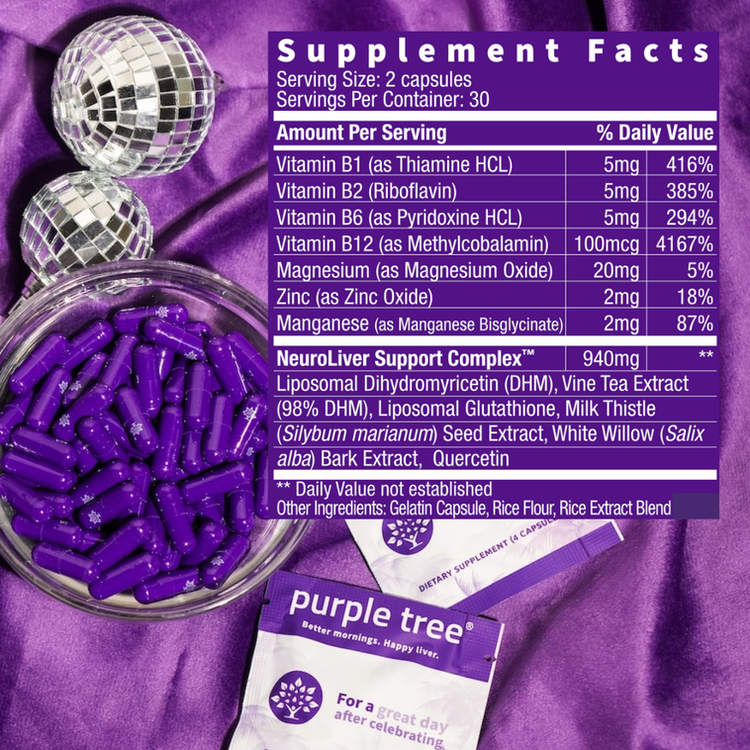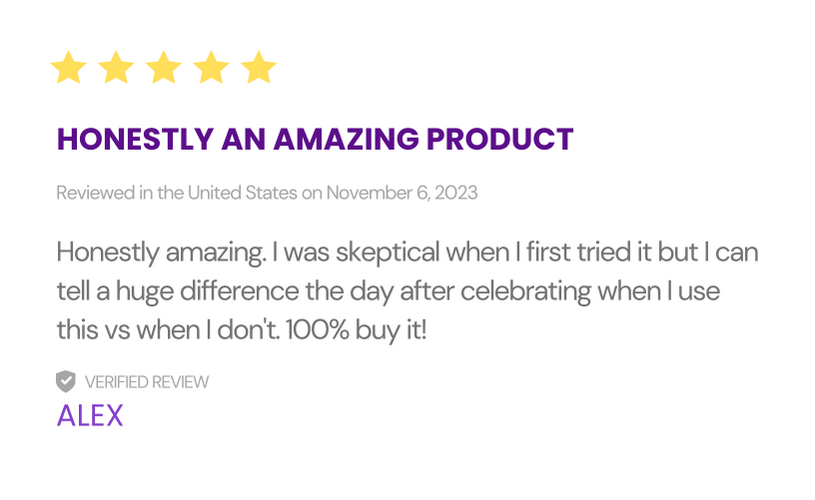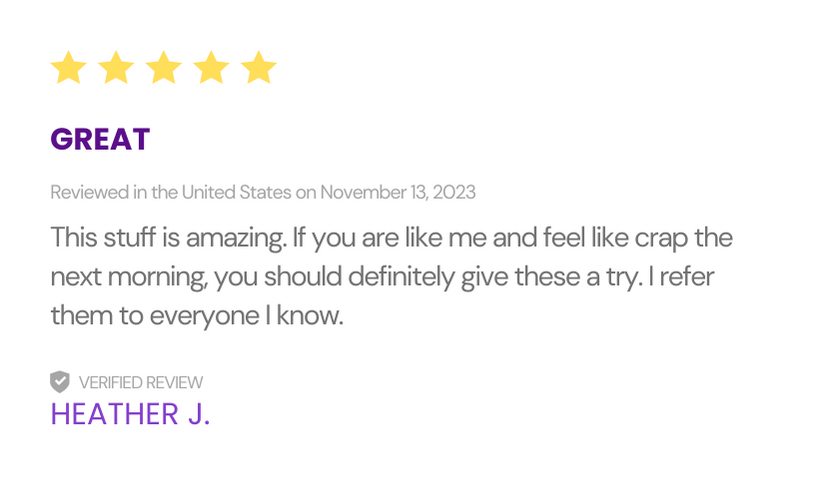.png)
4.6
Purple Tree Post-Celebration Wellness Pills
$24.95
Celebrate Tonight, Thrive Tomorrow
Purple Tree is your post-celebration sidekick — a premium herbal multivitamin formulated to support your liver, replenish essential nutrients, and help you feel your best after a night out (or in).*
Smarter Absorption, Superior Results
Now featuring Liposomal DHM and Liposomal Glutathione, our upgraded formula uses advanced delivery technology to help your body absorb key nutrients more efficiently — for faster, more complete recovery.*
It’s the same trusted Purple Tree blend, now powered by modern science for next-level wellness.*
Powered by Nature + Backed by Science
Each capsule includes our signature trio — Dihydromyricetin (DHM) from the Japanese raisin tree, Milk Thistle, and Willow Bark — now enhanced with Liposomal Glutathione, nature’s master antioxidant. Combined with essential vitamins and electrolytes, this formula supports healthy liver function, hydration, and overall balance — so you can wake up ready to take on the day.*
One-time purchase
$24.95
Subscribe & Save 20%
Cancel anytime.
$19.96
every 2 months until canceled
How To Take
Take Tonight! Take to 2 to 4 pills before, during or immediately after responsible drinking.
Ingredients
Dihydromyricetin, Milk Thistle, Liposomal DHM, Willow Bark, Liposomal Glutathione, B Vitamins, Electrolytes (Magnesium, Manganese, Zinc), Quercetin
Caution
This product will not prevent alcohol intoxication nor enhance sobriety. For adults only. Not for pregnant or nursing women. Do not take this product if you are allergic to aspirin. Consult a physician if taking medications or have a medical condition. Keep out of reach of children. Do not drink and drive.
.png)
.png)
7,000+ Reviews For a Reason
22,000,000
DOSES SOLD
OVER 7,000
REVIEWS
BORN IN
SAN DIEGO CA
DOUBLE TESTED
FOR QUALITY
MONEY-BACK GUARANTEE


















































